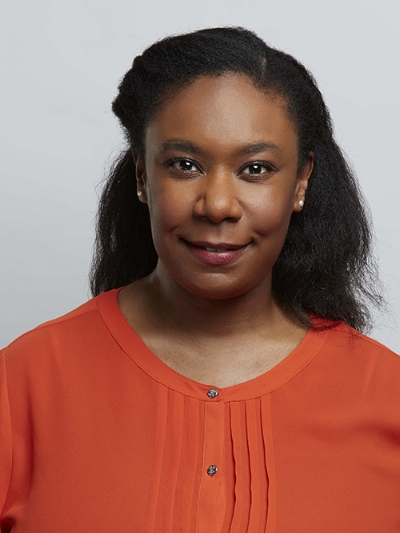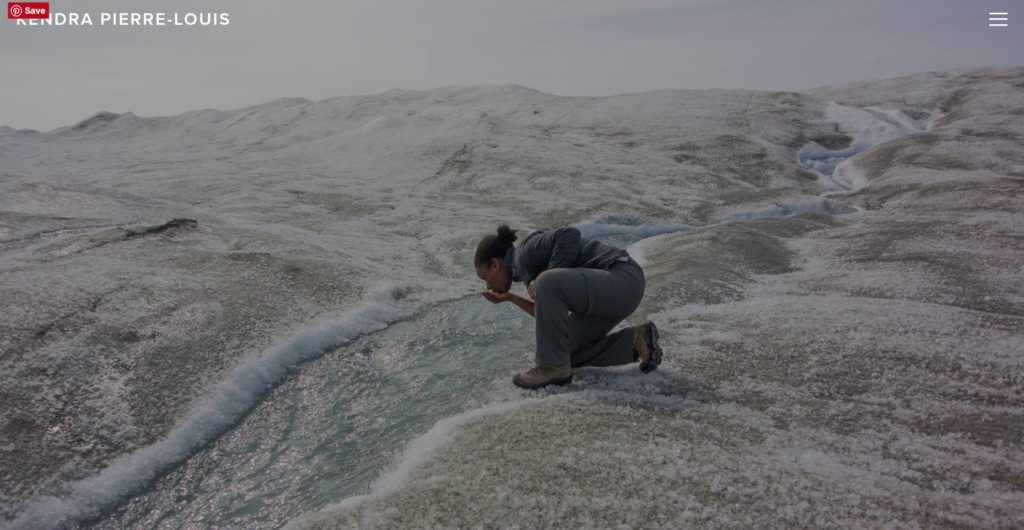Journalist confronts improving the environment as a moral question
November 18th, 2022 | Careers, SIT Graduate Institute

Kendra Pierre-Louis is not just a reporter with a voice, she’s a reporter with a megaphone. A print and podcast journalist, her stories have appeared in the Washington Post, The New York Times, Newsweek, The Atlantic, Slate, and many other news outlets.
She is the author of the book “Green Washed: Why We Can’t Buy Our Way to a Green Planet,” and she sits on the board of editors of Rural America In These Times.
It's a blockbuster C.V. that includes a BA in economics from Cornell University and an MS in science writing from MIT.
The more time I spent at SIT, I realized it was the U.S. that needed to be sustainably developed.
But Kendra’s career focus was still taking shape when she came to SIT to study sustainable development. “I knew I had the desire to do something in environment and sustainability—traditional sustainable development—and thought I would go overseas,” she recalls. “But the more time I spent at SIT, I realized it was the U.S. that needed to be sustainably developed.” She graduated from SIT in 2009 “knowing I wanted to do something in the sustainability space and I wanted it to be domestic.”
While climate change is finally beginning to have its moment in western journalism’s spotlight with dedicated beats at most major news organizations, too much of the coverage is what Kendra calls “global weirding stories instead of global warming stories: Here’s this aspect of climate change that you’ve never heard of and how it’s going to ruin your life.”

On their recent podcast series “How to Save a Planet,” Kendra and her colleagues tried to offer solutions to the existential challenge of climate change in a way that listeners could embrace. In a recent episode, Kendra talks about the fun of riding a bicycle. “I realized that often we talk about cycling as an obligation. But biking is fun; that’s why kids do it. … So, I wanted to do an episode that focuses on the joy of riding a bike.”
One of the ways national media fails the public is in treating democracy as a spectator sport. ... We need to give people the information they need to participate.
Beyond getting back on a bike, Kendra also hopes her work will inspire people to ride on over to the polls. “One of the ways national media fails the public is in treating democracy as a spectator sport. Democracy is a team sport, a participatory sport. We need to give people the information they need to participate. With ‘How to Save a Planet’ we do it through the lens of climate.”
Kendra’s approach to her beat is intersectional. She braids the science of climate change with racial and social justice. As she puts it on the In These Times website:
“Environmental justice reporting bridges a critical gap: the belief that environmental issues are distinct from human issues. Rather, when a town disappears due to environmental degradation, a child dies because of environmental pollution, or a farmer loses both her land and her livelihood due to rapidly shifting climate, we become intimately aware of how our lives are connected to the environment. Yet often, these stories stem from those most frequently stripped of their voice. Low-income communities and communities of color disproportionately bear the effects of our environmental pollution despite contributing least to their creation, a fact that emphasizes the need for a mechanism that enables them to be heard. Environmental justice reporting can be such a mechanism.”
It’s easy to feel like you’ve done the story on this predominantly African American or Hispanic or Indigenous community and you can move on. That’s wrong.
The intersectionality of racial, economic, and environmental justice should not be a one-off, Kendra told us. Stories should routinely include a wide array of voices. “It’s easy to feel like you’ve done the story on this predominantly African American or Hispanic or Indigenous community and you can move on. That’s wrong. For me, it’s less about doing a ‘very special episode’ and more about weaving those voices throughout my reporting. It’s about making sure the voices are not necessarily white male and affluent people in power.”
Her work is driven by an innate curiosity—a habit of asking questions, watching, and listening closely—that results in the kind of reporting few others are doing. Camping in Maine last year, she noticed a proliferation of fuzzy, almost charming caterpillars. Turns out, they are an invasive, toxic species wreaking havoc on people and communities across the state, as Kendra reports in this story in The Atlantic.
Another article came about when a scientist commented to her that no one was paying attention to the issue of rising groundwater, so she dug in. “There is a widespread understanding within the geological community that a lot of the flood maps are wrong, that some areas will flood from below, essentially. Sea walls don’t protect against rising groundwater,” she notes.
Her December 2021 article in MIT Technology Review speaks to the gravity of an under-reported problem: “Roadways will be eroded from below; septic systems won’t drain; seawalls will keep the ocean out but trap the water seeping up, leading to more flooding. Home foundations will crack; sewers will back flow and potentially leak toxic gases into people’s homes.”
Although other news organizations eventually picked up the story, few featured the human connection that Kendra’s story did: A Massachusetts woman and her disabled daughter living without heat because saltwater had seeped into gas lines under their house and eroded their furnace.
For me, questions about climate change, economic justice, racial justice, these are moral questions.
For Kendra, the professional is personal. “I grew up extremely Catholic. I’m pretty lapsed now, which is the right level of religion for me. But one of the things, for good or ill, that I still carry is a deep sense of morality. For me, questions about climate change, economic justice, racial justice, these are moral questions. Because of the way the U.S. and systems in the U.S. are structured, the default setting is that you are complicit in the harms we perpetuate. If you’re not doing anything to disrupt the harms, you’re in effect agreeing to the immorality of the systems.”
For Kendra, the hope is that journalism is disrupting the harm.
